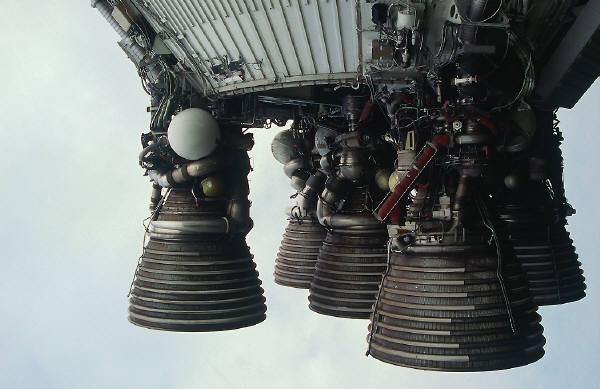
Recent stories here and here (and just about everywhere else) are pointing to an ongoing investigation, recently trumpeted by two Congressmen, which claims that NASA may have been involved in illegal exports of sensitive technologies to China.
The basic allegations of the investigation are that individuals from NASA’s AMES Research Center conducted illegal transfers of ITAR-controlled technologies to a variety of foreign nationals, including Chinese nationals. Specifically, Congressmen Frank Wolf (R-Virginia) and Lamar Smith (R-Texas) allege that NASA may have released sensitive information about certain propulsion technologies during a number of public conferences overseas. These technologies – originally created for missile systems – were later adapted for NASA’s Lunar Atmosphere and Dust Environment Explorer (Ladee). As any good ITAR consultant will tell you, once something has been developed for a military application – which, by the way, includes missile propulsion – that “something” will remain under the controls of ITAR until the end of recorded time. (Unless that “something” happens to be, say, a satellite. And even then, we wouldn’t allow it to go to China.)
If you have any doubts about the above-mentioned basic principle of ITAR compliance, just consider that the M1 Garand rifles used to storm the Normandy beaches on D-Day, 68 years ago, are still controlled by ITAR and cannot be shipped to China without our government’s approval. So, if they still control ancient rifles from decades ago, do you think they’ll want to control a propulsion system that can be used to send missiles halfway around the globe? You bet!
However, I believe there’s a larger and more important question at play here. From an ITAR enforcement perspective: Does any of this even matter? Put another way: What’s being done to stop it from happening again? Let’s imagine a hypothetical scenario where NASA is “convicted” of illegal technology transfers to China. What will happen in this imagined scenario? Heavy fines? Increased oversight? Denial of NASA’s export privileges? The answer, of course, is: no, no and (most certainly) not ever. Perhaps some NASA officials may lose their jobs? Maybe Congress will conduct hearings? But the question is: Will anything really change?
We all know that industry has its feet held to the fire, every day, on ITAR and EAR compliance. And it’s no secret that government agencies responsible for enforcing these laws are staffing up – hiring more special agents, seeking higher penalties and aggressively pursuing leads to track down, and prosecute, the worst offenders. It’s all in the name of national security, and the truth is, these agencies should be doing all of these things. It’s imperative that those who operate in the defense and high-tech industries are held accountable for protecting our national security, whatever the cost.
The problem arises when our own government is not held to the same standards it’s tasked with enforcing. NASA can attend conferences … DoD can execute its missions around the world … and the L.A. police department can send bulletproof vests to Cambodia all day long … but until there are fundamental changes in the way these agencies operate, export violations will continue to occur. Simply put: If the U.S. government is trying to increase enforcement of our export laws and regulations (which, by all accounts, is a necessary and good thing), then they should also be spending an equal amount of resources to train and educate their own employees on the critical need to comply.
I don’t expect the U.S. Army, NASA or any other governmental agency to pay multi-million dollar ITAR fines. But I do expect those agencies to follow the same basic rules that U.S. defense contractors must adhere to, in the interests of national security. Otherwise, what’s the point? It isn’t like our enemies care whether the violation comes from industry or the government. Once an illegal export occurs, the damage is already done.
Abraham Lincoln once famously said, “A house divided against itself cannot stand.” Seven years before the end of the Civil War, Lincoln (correctly) predicted that our country could not continue to operate half-slave and half-free. It would either be all one, or all the other.
In much the same way, I believe we cannot continue to protect our national security with conflicting rules and double-standards. We will either become a nation that gives away our defense secrets – chalking up those losses to the “cost of doing business” – or we will become a nation that earnestly strives to protect ourselves, across the board, from those who wish to do us harm.
Tom Reynolds is the President of Export Solutions, a consultancy firm which specializes in helping companies with import/export compliance.
